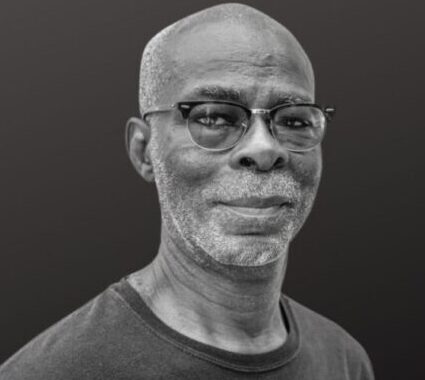
Forthcoming super-highways
I am thrilled to learn that the Federal Government plans two major highways, one to link Abuja and Lagos, and the other, Lagos and Port Harcourt.
I praise these ambitious projects, as unveiled by the Minister of Works, Dave Umahi, who also said they will be implemented as public-private partnerships.
Hopefully, these projects will be treated with commitment and a sense of urgency. Seven years ago, the Muhammadu Buhari government tantalised the public with a similar idea: a $1bn greenfield expressway between Lagos and Abuja, courtesy of China. Characteristically, it was not built.
Reporting the Umahi story, the News Agency of Nigeria described “super-highways” as having more than one lane for each direction of traffic.
Not really. If it is just two lanes, that would be a dual carriageway. A super-highway features several lanes designed for fast travel.
Beyond just “state-of-the-art facilities for the comfort of travellers,” it is normally a robust construction to enable it to last for many years.
It is not a super-highway if it develops potholes soon after commissioning or requires new contractors for various broken segments. A project of this nature should be done to international standards or not done at all.
Re: ‘Sonala Needs to Get His Facts Right’
For four years under the Muhammadu Buhari administration, I appended to this column every week the following advisory: “This column welcomes rebuttals from interested government officials.”
Four years. I was hard on the egregious shortcomings of that government, but I also wanted them to be able to criticise me on my turf. Sadly, they never once challenged a column or a fact or an assertion. Four years
Last week, three months after they left office, Garba Shehu, perhaps the lifetime spokesman to Mr. Buhari, published, “Sonala Needs to Get His Facts Right,” as a response to my last column.
The spokesman did not respond to any of the facts or questions in the column, not honestly anyway. So let us talk about facts.
One: Contrary to Shehu’s account, I have never been on a Lagos-Ibadan train, let alone on a ride with Rotimi Amaechi.
Two: I have never sought to “delegitimise” Buhari.
Indeed, I endorsed Buhari’s candidature for president in 2011 and 2014. Shehu would remember that; he commended me in writing. And when Buhari took office, in the misguided belief that he was genuine, I recommended a “winning communication strategy.”
But Buhari was a gamer, and he delegitimised himself partly by the same arrogance with which—eight years later—Shehu is still dismissing the scandalous report by Breaking Times that Buhari owned an Abuja mansion: “an unrecognisable junk newspaper that once wrote an unsubstantiated article alleging the ownership of an Abuja estate.”
Three: Breaking Times wrote nothing about an estate (so this is probably a Freudian slip); it affirmed that Buhari owned a specific mansion.
“[Sonala] said since the report was unchallenged by the Presidency, it must be true,” Shehu wrote, adding, “No one who has an inkling of knowledge of the essential Buhari would have taken this report seriously.”
Four: While I have written about the report many times, I have never said that it was true; I simply expressed the view that the matter deserved to be addressed. Any man of character would. If there is—or was—an “essential Buhari,” I imagine that he would have taken his image seriously.
Five: “Second thing [Sonala] did to delegitimise was to dwell on the stolen funds from the Global Vaccine Alliance, GAVI,” Shehu wrote, “an incident that happened 2014-2015, uncovered and dealt with by the Buhari administration when it came into office in 2015.”
I have never written about GAVI. But I did write about the 2016 report of the Global Fund, which was so scandalous and shameful that Buhari set up three committees to review it, towards pacifying the international community.
However, Buhari never publicised his decisions, if any.
The Fund itself said in a follow-up report on Nigeria in 2018 that the Buhari government refunded nearly $6m of the funds that had been looted. Sadly, his “corruption-fighting” government made that payment secretly, and more importantly, by protecting the thieves!
Think about that: while the Global Fund was giving other nations hundreds of millions for development, Nigeria was secretly refunding for the scandals the organisation had uncovered in its 2016 report.
“Finally, to say that Mr. Sonala is free to ask questions about some of these issues before using his otherwise respected column to make unfounded claims or criticisms,” Shehu wrote.
First, the background: I write for the record, Shehu, not for applause. I write so that your grandchildren and mine can know their history. For eight years, your administration neither pursued the path of serving the Nigerian people nor did you answer any of the questions you now say I should ask.
Shehu said of me: “The sin on the part of President Buhari is that he simply ignored you in all your rants and tantrums throughout his years in office.”
This assertion is dubious and ridiculous. Buhari did not ask for my support to get him into office, am I supposed to seek his permission to review his performance? And how, by the way, would he have engaged me, given that I am not on the market: with a bribe or a bride?
Shehu accuses me of “not discussing climate change, hunger, war or any contemporary challenges- attacking Presidents, even after they have left office…” Is there any issue more important than bad governance? A public policy analyst is irresponsible if, having become a crime witness, he abandons the task of documenting it to get lost in Afghanistan or East Timor.
Anyone outside the circle of Buhari’s cronies knows that he made everything worse. While he flew around the world in indolent luxury, and while his cronies and friends bought mansions and built estates and sent their families abroad, Nigerians died daily, if not on bad roads or at the hands of so-called bandits, then of hunger, injustice, or lack of medical care. Children were kidnapped from their schools by the hundreds. Poverty crushed communities. Teachers starved and students walked the streets. Jobless graduates died of hopelessness and heartbreak. Doctors and nurses and engineers fled.
For daring to report this abominable achievement unceasingly, Shehu describes me—armed only with words—as “chillingly violent”?
Why doesn’t he, instead, answer any of the questions Nigerians have asked since May 2015 of a government that comprehensively violated and betrayed them (which is why none of their senior officials can walk the streets today)?
Yes, Shehu, America has “gleaming malls and opulent high-rises,” but its leaders expect to be held to account.
I have always been willing to celebrate leaders of honour, but not counterfeit patriots. One feels filthy having to write again and again about bad leaders, but what choice is there when they want to write our story?
The point is this: if you betray your people and leave your country worse than you met it, a thicket of perpetual spokesmen writing drivel cannot help you in the history books. (Or, for that matter, should something “chillingly violent” happen.)
And they will be robustly challenged.
(This column welcomes rebuttals from interested government officials).


